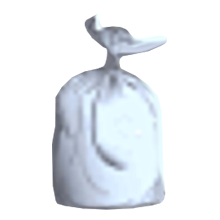HSC Dietitians based at the Princess Elizabeth Hospital work closely as part of your medical team to try to help you to full health, using food and nutrition. We are University educated to a minimum of Degree level and are regulated by the Health Care Professions Council. We offer impartial advice in an approachable, friendly manner.

For more information about the difference between Dietitians, Nutritionists, and commonly asked questions please see the following link:
https://www.nhs.uk/common-health-questions/food-and-diet/
Good nutrition helps people recover faster and our goal is to compassionately support people to stay healthy for as long as possible.
How to access HSC Dietitians
You can access our service by talking to your Doctor or Health Care Professional who can then refer you to us. You do not have to pay to see us.
We accept the following referrals:
- Anyone under Secondary Care (Consultant/hospital care)
- All patients with cancer
- All paediatric patients
- Everyone with a BMI over 30 needing help to lose weight
- Anyone who has lost a significant amount of weight unintentionally
We run regular groups for:
- People with Type 2 diabetes
- People with Irritable Bowel Syndrome
You can also contact us on 01481 225433.
Useful advice on healthy eating
Managing your weight
- The Body Mass index (BMI) measures your height and weight
- Find out more about BMI on this link: https://www.nhs.uk/common-health-questions/lifestyle/what-is-the-body-mass-index-bmi/
- You can calculate your BMI using this easy guide: https://www.nhs.uk/live-well/healthy-weight/bmi-calculator/
Losing weight for health
- Achieving and maintaining a healthy weight in the under 60s age range helps reduce the chances of becoming unwell in the future. Your Body Mass Index (BMI) is a useful guide to your weight health. In the under 60s it should ideally be between BMI 18.5kg/m2 and 25kg/m2
- However, if you are overweight, losing 5 - 10% weight significantly improves your health and reduces your risk of conditions such as type 2 diabetes, heart disease and cancer
- You can check your BMI easily here
- There are other excellent NHS and Change for Life weight loss and healthy eating resources here
- Apps which track your intake and calorie requirements such as: my fitness pal
- We know losing weight can be difficult at any age. If your BMI is over 30 and you would like to see a dietitian for free one-to-one support, your GP can refer you to our service.
Helping you to gain weight after an illness
- If you need to gain weight following a period of ill-health or as the result of a medical condition, we can support you. This applies particularly when you require specialist dietary care above general healthy eating advice.
- You can use this link to assess your Nutrition. If the results from the MUST test on the link show that you have lost more than 5% of your weight ask your GP to refer you to our service especially if you are finding it difficult to gain weight.
- We are trained to offer the right type of nutrition to help to strengthen the immune system, aid wound healing, reduce the risk of falls and improve mental health.
- Find out more on this link
Cancer & Nutrition
- Cancer itself and its treatment place extra demands on your body. Research suggests that eating well benefits people during and after cancer treatment.
- The right nutrition can help to:
- manage the side effects of treatment
- speed up recovery after surgery, radiotherapy, chemotherapy or other treatments
- improve your body's immune system
- rebuild damaged tissues
- fight infections as well as reduce the risk of cancer coming back
- We can support you on your journey - contact us via your doctor and help is also available on line here: https://www.macmillan.org.uk/
Diabetes
- We run regular type 2 diabetes education group sessions at Beau Sejour which you can book in to by contacting your healthcare professional. Type 1 (insulin-dependent) diabetes patients can be seen on request.
- You can find more useful information on diabetes at https://gov.gg/diabetes and https://www.diabetes.org.uk
Nutrition for Mental Health
- While most people are aware of the connection between nutritional deficiencies and physical illness, fewer people recognise the connection between nutrition and mental health.
- Nutrition plays a key role in helping patients deal with different kinds of mental health issues.Eating well, sleeping and being active all help optimize Mental Health. For more information click here:
- If you are concerned that you or a family member may have an eating disorder, contact your GP for support and advice.
Nutrition for Pregnancy
- This is a special time and it's important to give your body the nutritional resources it needs to get the best possible start in life for your baby. Here are some useful websites for further information:
Childhood nutrition
- There is a weekly Children's Dietitian Clinic that takes place at Lukis House. Ask your health visitor, school nurse or GP who can make a referral for you. Here is a useful site for information: http://www.nhs.uk/change4life-beta/recipes
Bowel problems
- Bowel problems, however annoying or embarrassing, are surprisingly common.
- It is important to see your GP if you notice a change in your bowel habit and to also engage with the bowel cancer screening programme. Click here for information on screening programmes.
Irritable Bowel Syndrome (IBS)
- If you have been diagnosed with Irritable Bowel Syndrome, or IBS, your GP can refer you to attend our IBS group sessions which take place weekly at the PEH.
- If you have IBS these links are a good place to start:
Inflammatory Bowel Disease (Crohns & Colitis)
- For those with diagnosed with Inflammatory Bowel Disease (Crohns & Colitis) we recommend looking through: https://companion.crohnsandcolitis.org.uk
- There are also local support groups:
- We can also see you, if needed, for an individual appointment.
- For other conditions, contact the HSC Dietitians' Department or check the NHS website here
Coeliac Disease
- Coeliac disease is a genetic disorder and requires lifelong adherence to a gluten-free diet. Symptoms can develop at any stage. Once diagnosed, there is open access to the dietitians and also support from local Coeliac Support Group: https://www.facebook.com/pg/Guernsey-Coeliac-Support-Group-Page-297039780350444/community/ and Coeliac UK: https://www.coeliac.org.uk/home/
Heart Health
- A good nutritional diet is essential to maintaining a healthy heart. Our nutritional expertise can help before heart surgery and post-operation recovery.
- Click on this link for more information:https://www.heartuk.org.uk/
Cholesterol
- Having high cholesterol is when you have too much of a fatty substance called cholesterol in your blood. Having a nutritional balanced diet and taking regular exercise is, for most people, the best way to keep cholesterol levels in check. If it goes unchecked, high cholesterol can lead to cardiovascular disease which is the leading cause of preventable death in the developed world. You can find some useful advice on this link: https://www.bhf.org.uk/informationsupport/support/healthy-living/healthy-eating
Familial Hypercholesterolaemia (FH)
- There are some people that, despite leading lead a healthy lifestyle and adopting a healthy diet, can still have high cholesterol due to a genetic disorder called Familial Hypercholesterolaemia (FH).
- Guernsey now runs a free FH screening programme which, if the condition is identified, can be treated with tablets reducing an individual's likelihood of developing cardiovascular disease to normal risk levels. You will see a Dietitian face to face if you are found to have this condition. For those with the condition that have children, there is a 50% likelihood that their children will also suffer from the condition, unaware of the fact they have a higher risk of developing cardiovascular disease.
- The screening is free, but you need to be referred by a GP. To find out more please click on the link below to view a video which explains how the programme will work:
- https://vimeo.com/345869743
Kidney health
- Contact the Dietitians directly for bespoke advice on diet for Kidney health. The following link provides useful tips on looking after your kidneys: https://www.nhs.uk/live-well/healthy-body/keeping-your-kidneys-healthy/













